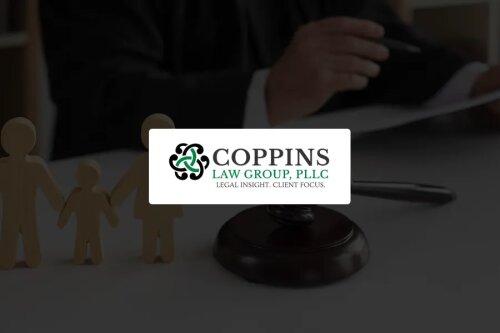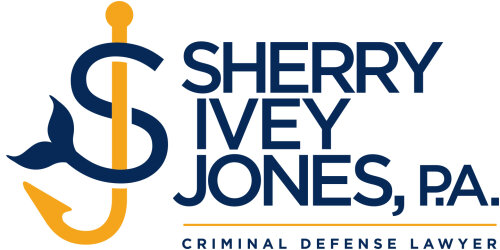Best White Collar Crime Lawyers in New York City
Share your needs with us, get contacted by law firms.
Free. Takes 2 min.
List of the best lawyers in New York City, United States
1. About White Collar Crime Law in New York City, United States
White collar crime in New York City encompasses non-violent offenses involving deception, financial misrepresentation, or breaches of trust for monetary gain. Common examples include fraud, embezzlement, tax crimes, and securities offenses. NYC's role as a global financial hub means both state and federal authorities actively investigate and prosecute these matters. Understanding how these laws operate locally helps residents decide when to seek legal counsel from an attorney or solicitor in New York.
In practice, white collar cases in New York City can involve multiple jurisdictions and agencies. You may encounter state criminal charges, federal criminal charges, or parallel civil investigations by agencies such as the Securities and Exchange Commission or the New York Attorney General. The interplay between these tracks can affect timing, potential penalties, and available defenses. A focused, New York-appropriate strategy often requires specialized legal counsel with experience in both white collar practice and NYC court processes.
For an overview of how federal and local enforcement approaches white collar matters in NYC, see official resources from the FBI and the Department of Justice. These agencies outline typical case types, investigative approaches, and the role of prosecutors in white collar matters in New York City. FBI - White Collar Crime • DOJ - White Collar Crime • SDNY - U.S. Attorney for the Southern District of New York.
2. Why You May Need a Lawyer
Below are concrete, NYC-specific scenarios where you would likely benefit from legal counsel specializing in white collar crime. Each example reflects real-world contexts faced by individuals and companies in New York City.
- You are under federal or state investigation for alleged securities fraud or insider trading tied to a Manhattan firm. A lawyer can evaluate the scope, preserve attorney-client privilege, and coordinate with investigators.
- A NYC company or executive faces charges for forgery, embezzlement, or tax fraud arising from a New York-based operation. An attorney can assess potential defenses, negotiate with prosecutors, and plan any civil-penalty considerations.
- You receive a target letter or grand jury subpoena in a white collar matter and need immediate guidance on non disclosure, privilege, and strategy in a NYC courtroom setting.
- You are part of an internal corporate investigation in NYC and must balance cooperation with potential privilege protections and the risk of self-incrimination. A lawyer can structure an internal investigation and communications strategy.
- You are a high-level NYC executive or founder facing multi-jurisdictional allegations and require a defense plan that coordinates state and federal perspectives, including potential parallel civil actions.
- You are a whistleblower or employee considering reports to regulators or authorities while managing personal liability and exposure in a New York context. An attorney can advise on protections and steps to take.
In these scenarios, a local white collar crime solicitor or attorney can help with privilege issues, evidence preservation, and strategic decisions about cooperation or defense. NYC residents should consider counsel early to protect rights and avoid inadvertent admissions. A qualified attorney can also assist with compliance programs to reduce future risk after investigations conclude.
3. Local Laws Overview
New York City crime enforcement involves both federal statutes and state law. Below are 2-3 well-known laws by name that frequently appear in white collar matters in NYC. Note that enforcement often combines multiple statutes depending on the facts and jurisdiction.
- 18 U.S.C. § 1343 - Wire Fraud
- 18 U.S.C. § 1344 - Bank Fraud
- Penal Law Article 170 - Forgery (Forgery and related instruments under New York state law)
Federal wire and bank fraud statutes have long-standing applicability in New York City, including cases arising from NYC financial markets, brokerages, and banking institutions. New York state law also covers written instrument fraud and related acts under Penal Law Article 170. For statutory text and definitions, consult official government sources such as the federal and state sites listed in the citations below.
Recent changes and trends in NYC white collar enforcement involve continued cooperation between federal prosecutors in the Southern District of New York and state authorities. While the core statutes remain stable, prosecutors increasingly pursue multi-jurisdictional schemes and leverage civil enforcement to augment criminal cases. For ongoing updates, refer to federal and state agency resources linked in this guide.
4. Frequently Asked Questions
What is white collar crime in simple terms?
White collar crime refers to non-violent offenses involving deception or financial gain. It includes fraud, embezzlement, and securities violations. In New York City, such cases often involve business or financial professionals and can be pursued in state or federal court.
How do I know if I should hire an attorney for white collar matter?
If you are under investigation, served with a subpoena, or facing charges, you should consult a solicitor or attorney promptly. Early representation helps protect rights, preserve evidence, and negotiate favorable terms with prosecutors.
When can charges be filed in a NYC white collar case?
Charges may be filed after an investigation by federal or state authorities, or after a grand jury indictment or state information. Timing varies by case complexity and agency involvement, but early legal guidance is advisable.
Where do white collar cases typically get filed in New York City?
In NYC, federal white collar cases are filed in federal court within the SDNY jurisdiction. State white collar offenses are filed in New York State Supreme Court or county courts depending on the charge and venue.
Why are white collar cases often complex to defend?
These cases involve complex financial records, multiple jurisdictions, and expert testimony. They may include intricate accounting, tax, or securities issues that require specialized knowledge and cross-examination of experts.
Can a lawyer help with a corporate compliance program in NYC?
Yes. A lawyer can design and implement compliance programs to address internal controls, reporting, and risk management, which can be helpful both before and after investigations.
Should I cooperate with investigators without a lawyer in NYC?
Cooperation decisions should be made with counsel present. Early cooperation can affect potential charges or penalties, and counsel can help you navigate privilege and protection issues.
Do I need a local NYC attorney or can a national firm handle this?
Local experience matters. A NYC-focused attorney understands local courthouses, judges, and prosecutors, though national firms with NYC offices may also be suitable for complex, multi-jurisdictional matters.
Is there a difference between state and federal white collar charges in NYC?
Yes. Federal charges carry different statutes, procedures, and penalties than state charges. The choice affects potential defenses, discovery rules, and sentencing ranges.
What is the typical timeline for a white collar case in NYC?
Timelines vary widely. Some cases resolve in months, while others extend over years through pre-trial motions, trials, and sentencing. An attorney can provide a realistic timeline based on your situation.
How much does hiring a NYC white collar crime lawyer cost?
Costs depend on case complexity, attorney experience, and billing structure. Common arrangements include hourly rates, flat fees for specific tasks, or blended fee agreements.
What's the difference between a grand jury indictment and information in federal cases?
Indictments come from a grand jury and require a finding of probable cause. An information is a charging document filed by a prosecutor with a judge, typically used when cases proceed without a grand jury.
5. Additional Resources
These official resources can help you learn more about white collar crime, enforcement, and rights in New York City.
- FBI - White Collar Crime - Federal investigations and enforcement in financial crime, corruption, and related areas. fbi.gov
- U.S. Securities and Exchange Commission (SEC) - Enforcement - Federal securities law enforcement, insider trading, accounting fraud, and investor protection. sec.gov
- U.S. Attorney's Office for the Southern District of New York (SDNY) - Prosecutions and enforcement in New York City for federal cases. justice.gov/usao-sdny
Additional state level resources can provide context on consumer protection and fraud cases in New York. See official pages from the New York State government for broad information on penalties, reforms, and enforcement actions. ny.gov
6. Next Steps
- Define the scope of your matter and your goals. Note whether you face federal or state charges or an ongoing investigation in NYC. Set a realistic timeline for responses and decisions.
- Gather and securely organize documents relevant to the matter. Include contracts, emails, ledgers, tax filings, and prior communications with investigators or regulators.
- Research local white collar defense attorneys with NYC practice experience. Look for track records, bar admissions, and relevant industry experience.
- Check credentials and disciplinary history with the New York State Bar Association and the NYC courts. Confirm active practice in white collar matters.
- Schedule initial consultations with 2-4 attorneys to compare strategy, communication style, and expectations. Bring a summary of facts and questions.
- Ask about fees, retainer terms, and potential costs for experts, investigators, and court appearances. Get a written engagement letter before proceeding.
- Make a decision and engage your chosen legal counsel. Outline a defense plan, privilege strategy, and a anticipated timeline with your attorney.
Lawzana helps you find the best lawyers and law firms in New York City through a curated and pre-screened list of qualified legal professionals. Our platform offers rankings and detailed profiles of attorneys and law firms, allowing you to compare based on practice areas, including White Collar Crime, experience, and client feedback.
Each profile includes a description of the firm's areas of practice, client reviews, team members and partners, year of establishment, spoken languages, office locations, contact information, social media presence, and any published articles or resources. Most firms on our platform speak English and are experienced in both local and international legal matters.
Get a quote from top-rated law firms in New York City, United States — quickly, securely, and without unnecessary hassle.
Disclaimer:
The information provided on this page is for general informational purposes only and does not constitute legal advice. While we strive to ensure the accuracy and relevance of the content, legal information may change over time, and interpretations of the law can vary. You should always consult with a qualified legal professional for advice specific to your situation.
We disclaim all liability for actions taken or not taken based on the content of this page. If you believe any information is incorrect or outdated, please contact us, and we will review and update it where appropriate.

















